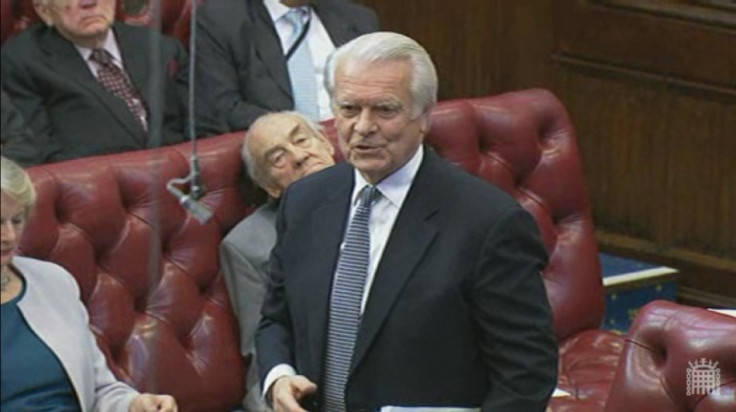NHS Reforms: House of Lords Rejects Final Call For Health Bill Delay

What may prove to be the last effort to block the controversial NHS reforms has failed in the House of Lords.
A motion, tabled by Lord Owen, called for the house to delay its third reading of the health and social care bill to consider a tribunal's decision on the publication of a risk register.
The coalition government refused to publish a transition risk register, a decision which was declared wrong by an information tribunal.
Lord Owen asked: "Can we wait a couple of weeks to actually hear the words of the appeal tribunal, which we gave the power to make the decision?
"Just because it's against the government doesn't mean we should give them carte blanche."
He repeated concerns that the bill had been roundly criticised throughout the health service.
"If the bill is passed, they must accept the judgment of parliament. But let us not leave unfettered business on such a massively important bill."
Owen asked for the House to wait until the tribunal made public its reasons for finding that the government decision was wrong. The government would then have the right to appeal to the upper tribunal to block publication.
The motion failed to gain majority support, however, with 213 votes cast in favour and 328 against, making it likely that the bill will receive royal assent within days.
In an often heated session, the lords debated the implications of the publication of a register, which some claimed would have damaging repercussions for the role of civil service.
Baroness Thornton gave her support for Owen's motion, claiming that the possibility of a three-week delay was overshadowed by the public interest in the register.
Lord Wilson of Dinton said the argument was not one of governmental honesty, but claimed it was necessary for ministers to be confident in the candour of their civil servants.
"Risk registers should be honest and look at the worst case," he said.
"If they are going to be public, they are likely to be sanitised and they will not fully express the risks or, even worse, they will not be given. It could drive important advice off the paper and into oral messages and that is a problem.
"If we push this decision into the public debate, we will lose part of the role of the civil service. This is not the right way to attack the bill. It will be a very dreadful mistake if we do set a precedent which affected the civil service's ability to serve the government."
Baroness Murphy claimed that Owen's motion was nothing more than an attempt to delay the adoption of the bill, which he has publicly opposed, branding the register a "poilitical red herring".
"I can think of nothing worse for the NHS than to have this process delayed yet again," she added.
© Copyright IBTimes 2025. All rights reserved.





















